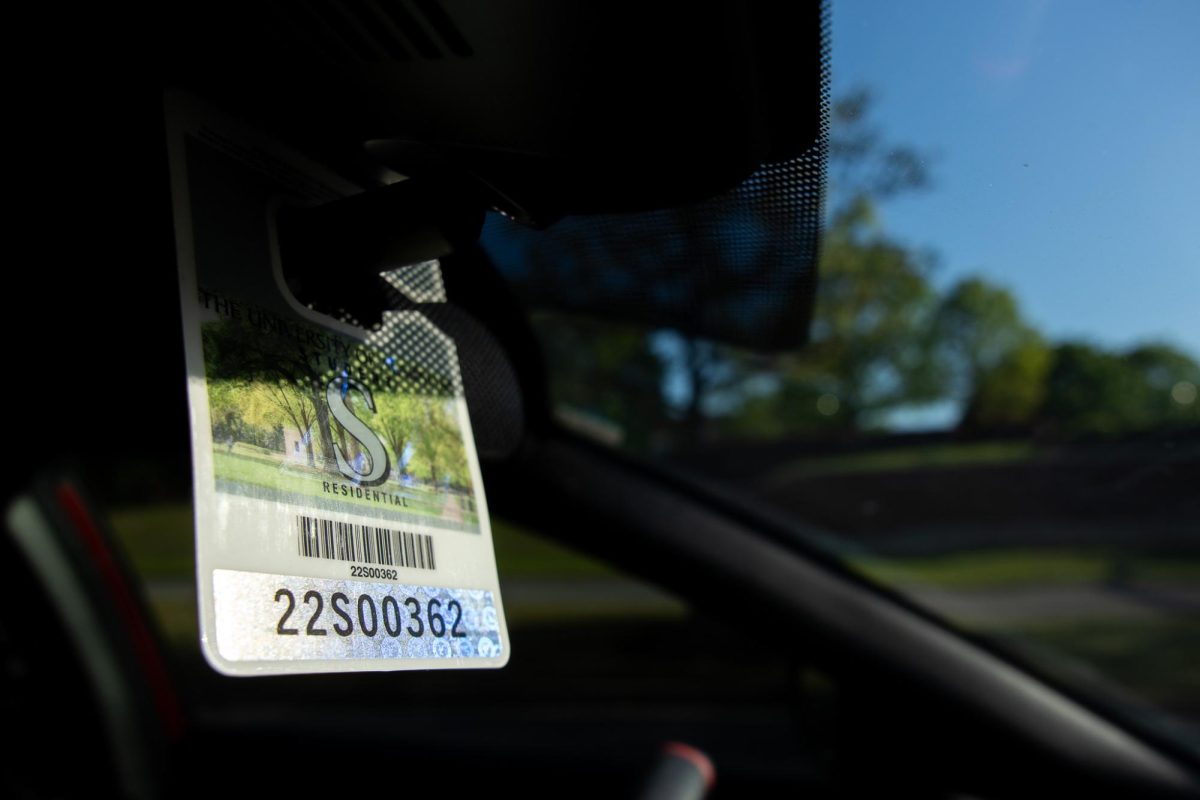The development of many new gadgets and advances in technology may help students reach their New Year’s goal to shed some extra pounds.
According to the University of Scranton Journal of Clinical Psychology, the No. 1 New Year’s resolution for 2012 was to lose weight. However, less than 50 percent of people were able to stick to their goals for more than six months.
Allysa Schott, a junior majoring in biology, said she wanted to start out 2013 by getting in shape.
“Getting in shape is one of my New Year’s resolutions,” said Schott. “I just want to get toned and eat healthier.”
In order to fulfill these resolutions, many people are turning to technology to help motivate them to exercise and eat healthier.
In a recent USA Today report, a smart fork used to track the amount of time a person takes to finish a meal was introduced at the 2013 Consumer Electronics Show conference. The HAPI fork was designed to alert users with an indicator light when they are consuming meals too quickly. It contains a motion sensor to figure out when it has been lifted to your mouth and includes software that can conveniently sync to an app on your iPhone to keep track of your meals.
“Haven’t heard of the smart fork, but that sounds ridiculous,” said Krista Vick, a senior majoring in nutrition. “Any type of fad diet is ridiculous. Also, none of these things will truly help you in becoming fit, except being dedicated to a lifestyle change.”
According to a CNN article, it takes 20 minutes for your brain to begin sending signals to stop eating. This has led to the development of tools to help people eat their meals slower to encourage weight loss.
“My take on any technology that makes us conscious of what we’re doing is helpful,” said John Jackson, assistant director of fitness and research. “We all have ruts we get into and bad habits, so things that make you think more are good.”
Eating food slower may be a method used by many for weight loss, but some find this approach to be ineffective.
A study done by researchers in the Netherlands published in The Journal of Nutrition reported that eating slowly did not curb peoples’ snacking behavior.
Jackson said the main problems college students face in their weight loss efforts are bad diets and lack of activity.
“For most college students, there is such a big transition from high school to college and how much activity you get with all the additional free time,” Jackson said. “It all comes back to activity and nutrition.”
Schott said for most college students, eating healthy is not a top priority. “It’s just whenever you get time to eat and whatever is cheap.”
For Vick, getting in shape isn’t only a New Year’s resolution, but a lifestyle change.
“Losing weight and getting in shape has been more of a lifestyle change I’ve been going through the past year, so my New Year’s goal was to stay committed to that lifestyle change and compete in fitness bikini competitions throughout 2013,” Vick said.
Vick said she uses apps on her phone that include MyFitnessPal along with Nike+.
“I use Nike+ on my iPhone and the chip in my shoe when I run. It tracks your distance, calories and keeps up with all of the progress you make,” Vick said. “Also an app called Zombies, Run! It simulates zombies chasing you, which is fun when you want a change from your regular run.”
Jackson said he owns smart band that monitors how you move, sleep, and eat.
“You wear it on your wrist or in your pocket, and it tracks any movement that you make,” Jackson said.
There are advantages and disadvantages to some of the new age software, he said.
“Probably the biggest advantage is to make people more aware of the physical activity that they do,” Jackson said. “The disadvantage to some things like that is they don’t measure the exercise intensity, they just measure movement.”
Vick said she also uses a heart rate monitor to help monitor her workouts.
“The Polar heart rate monitors are a must when you are dedicated to a losing weight. They tell you exactly how many calories you burn, your heart rate, and analyze your body fat, they are awesome,” Vick said.
Jackson agreed that Polar heart monitors work well. “They give you the intensity and that is key,” he said.
While the use of technology and new gadgets is a popular way to assist in weight loss, nothing will replace hard work and exercise, Vick said.
“I think it’s great people are making advances in technology to lose weight, but honestly losing weight will never be easy. You have to work hard and be dedicated to see the results you want,” Vick said.
Schott said she doesn’t plan on using any new devices to lose weight, but plans on eating healthier instead.
“I’m going to try to cook more meals at home” Schott said. “I have to use my money for bills, not smart forks.”








